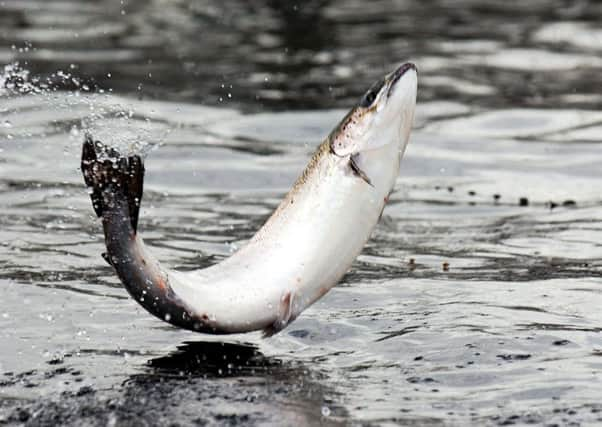Stephen Jardine: Growth of salmon industry has come at a price


This week producer Marine Harvest revealed more than two-thirds of its salmon farms in Scotland breached statutory sea lice limits last year. Instead of improving, the parasite problem actually seems to be getting worse and Scotland now has some of the worst infection rates anywhere in the world.
Marine Harvest blamed the rise on abnormally high water temperatures and “extraordinary lice pressure”. As a result, the parasites have been able to feast on salmon blood and skin, hampering growth and weakening the fish, resulting in deaths. That led to a cut in output and higher prices for consumers.
Advertisement
Hide AdAdvertisement
Hide AdThe problem is nothing new but it is on the rise. In the past chemical treatments have been used to try to control outbreaks but sea lice are now developing resistance. Instead salmon farms have taken to bathing the fish in warm water but that is an expensive approach and led to the accidental slaughter of fish last year.
At one point, the miracle solution to the problem seemed to be another fish called a wrasse. These so-called cleaner fish would swim alongside the salmon and strip the sea lice off them. However getting enough wrasse to do the job has proved to be a challenge.
The Marine Harvest announcement has stoked an already heated debate between those who believe salmon farming supports jobs and investment and feeds the masses and those who think the environmental cost of that is too high and the industry should be shut down.
The industry’s importance to Scotland can’t be underestimated. Directly and indirectly, it employs thousands of people at 250 locations in some of our most remote, economically fragile areas where alternative jobs are few and far between. It also provides us with a valuable source of affordable protein that is healthier than red meat. UK sales are more than £700 million a year and 60 per cent of the salmon farmed here is eaten here.
The salmon industry also points out, all farming faces health challenges. Even livestock farmers struggle with ticks and parasites so it’s not fair to single out salmon farming for special attention. But that ignores repeated problems with the discharge of chemicals used to treat sea lice into lochs around Scotland. As a result, conservation group Salmon and Trout Conservation Scotland says this country is now “the dirty man of aquaculture”. That’s a label no industry wants to have.
A lot of time and money is now being spent trying to solve the sea lice problem but that now needs to be ramped up. Salmon farming in Scotland is dominated by giant multinationals making huge profits and more of that money now needs to go into research and environmentally sustainable treatments. That won’t please critics who believe the whole industry should be shut down but at a time when we should all be eating less meat, salmon is currently part of the answer for us and a growing world population looking for affordable protein.
But that isn’t a green light to expand at any price. At the moment the Scottish Environmental Protection Agency is looking at draft proposals for the world’s biggest salmon farm around Orkney or Shetland. Projected waste from the fish would be equivalent to what is produced by city the size of Glasgow. Until the sea lice issue is solved, proposals like that are simply a non starter.
Well regulated, clean and sea lice-free salmon farming deserves to grow and prosper as part of the approach to feeding a growing population, but the focus right now needs to be on getting the industry to where it needs to be.